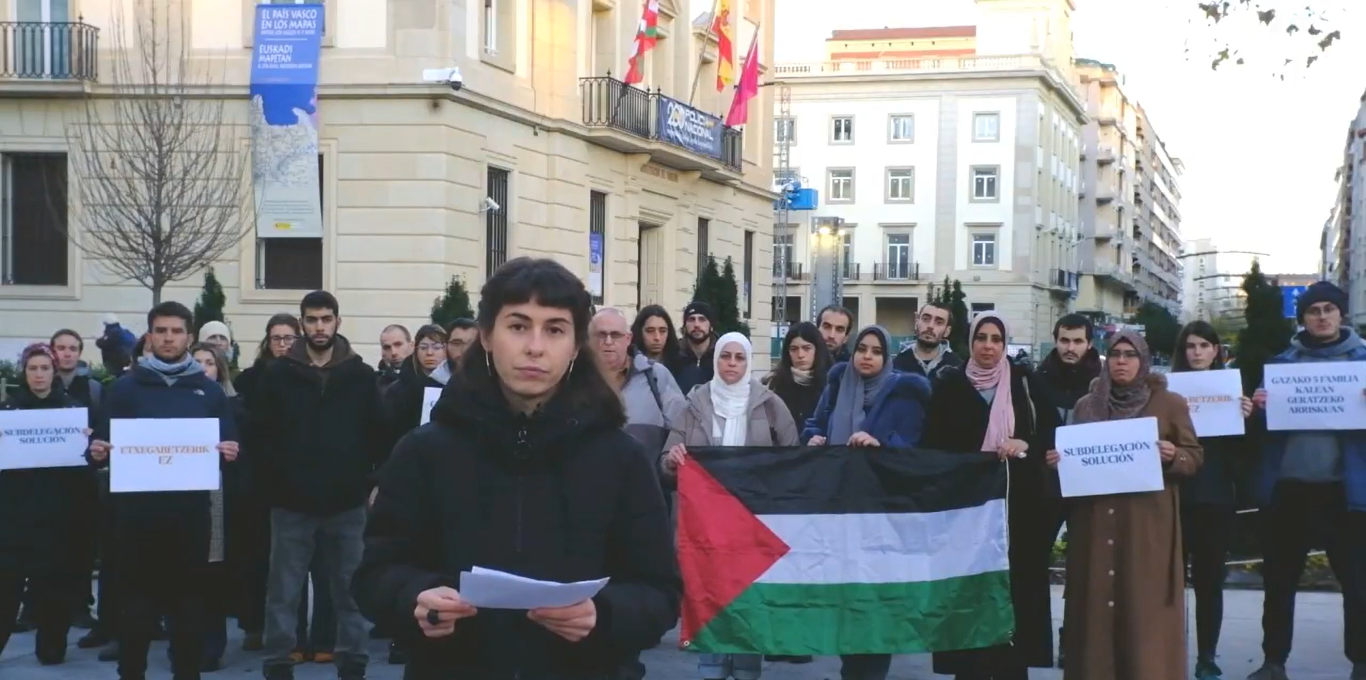On the island devastated by cement sowing property by the neighborhoods
- At the head of the website of the Gran Canaria Renters Union (SIGC) you can read “No homeless people or homes without people”. Although the collective emerged in 2017, at the initiative of the Anarchist Federation of Gran Canaria (FAGC), it is necessary to go back a few years to understand the accumulation and structuring of the union experience. Since its foundation, the union has approached people in need of housing and has worked on the politicization of this need, developing a neighborhood work, close to the institutions and the “legalisms”. This is a collective that until now has not had much visibility, perhaps with the collateral damage of this work “of darkness”. Now that in Euskal Herria the collective networks of housing, neighborhood and care are flourishing, we bring the struggle of the Union of Tenants of Gran Canaria, because as a class we only have to unite and empower ourselves in the problems we share.
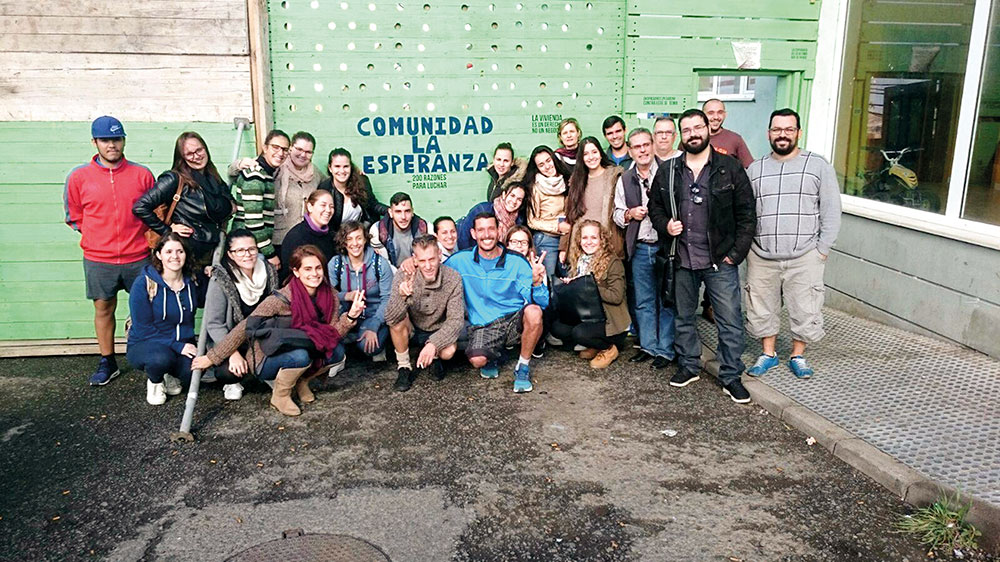
Following the M-15 movement, in the emblematic plaza of San Telmo in the Canadian capital of Las Palmas, the attendees consolidated the camp, as in so many other plazas of the Spanish State. Many homeless people found the shelter there and shared space with militants and protesters. But they were forced to evict the camp: militants and protesters returned to their homes, while homeless people returned to the street. In this context, the Anarchist Federation of Gran Canaria occupied the building called Pensión Paris to house the unemployed who were dismissed from the Plaza de San Telmo. Faced with the housing problem suffered by Gran Canaria and after a phase of internal debate, the federation undertook to continue the struggle just begun. The collective strategy is articulated around two pillars: the satisfaction of a need, the guarantee of the right to housing, and its subsequent politicization. From that first experience of occupation of the Paris Pension until 2017, the federation has made numerous attempts at occupation, some more successful than others. In that year, the Maizter Syndicate of Gran Canaria was created, with the aim of supporting, mainly judicially, and protecting the communities that live in the buildings occupied by the federation.
Cement island
The Canary Islands are the ones with the highest rate of unemployment and child poverty in the Spanish State, and the second lowest wage. At the same time, the eviction rate is very high: before the pandemic, 900 evictions could take place every three months. On the contrary, the number of empty houses in the islands is around 138,000. To this must be added the growing processes of gentrification, services for tourists, urban speculation and, in general, economic dependence on the tertiary sector. To a large extent, the islands have become a space for the enjoyment of tourists, and Gran Canaria is a clear example of this. The response of the Cabildo de Gran Canaria (organization governing each of the Canary Islands) so far has been the construction of more housing, so it is clear that the institutions have opted for speculation and performance. Errors caused by inefficient institutional decisions have been covered with cement.
The trade union has clearly spoken to us about the consequences of the problem: “As you approach a neighborhood, you’ll see a lot of shortages. When you leave the official tour, you will discover a lot of misery that we see. As you zoom in, you see people living in caves, accountants rooms, cars ... So, what FAGC has first proposed and then the union is to recover the situation: to recover the homes.”

Direct action as a axis
“As housing is a fundamental issue, we believe that the best option to recover it is direct action. So began the communities, so began the FAGC struggle for housing,” the union members explain.
Currently, the union participates in seven communities, all on the island of Gran Canaria: In La Esperanza, in Los Girasoles, in Arucas, in the community of Teror, especially in Las Masías, in Las Masías, in Las Masías, in the vicinity of Juan Grande, in San José del Álamo and in La Esperanza, in Guia. The latter, if any, is the most significant. Communities are managed through self-management, and although the union and the federation propose organizational models, the communities have the last word: “That neighbors organize and decide how to act in the everyday affairs of the community. We do not live there, therefore, we have nothing to say. It is true that we have signed a certain association agreement so that minimum standards are respected, and if the union is not respected, it departs directly. The trade union is primarily responsible for legal protection. In the face of a eviction notice, or a similar problem, then the union comes in.”
Communities have been organized in different ways. They were sometimes proposed through the assembly model in which everyone who makes up the community has an active role in management, decision-making, etc. On other occasions, the model of non-decision and non-participation has been followed, that is, the active role as a form of organization in which only one person participates. It is important to note that communities have frequently realized that the responsibilities under the responsibility of a particular person can solve them, demonstrating that they are capable of questioning their management model. It can be said that in this sense the politicization of the subject that the union considers basic materializes, which is the politicization of the community.
From Pandemia, “Rent Strike”
At a time when the existing misery in the housing sector has surged even further, the union has been fighting rent excesses since March 2020 and on 1 April proclaimed the “rent strike”, a turning point. The Tenant Advisory Service is working day and night, reflecting both mobile calls and message inputs. Monthly rent has become even more suffocating by the measures imposed by the pandemic, and the union denounces that insecurity in the payment of housing, precariousness and the risk of eviction. In addition, many tenants cannot benefit from the subsidies of the Government of Spain, as they do not meet the requirements for their receipt.
SIGC: "Since housing is a fundamental issue, we believe that the best option to recover it is direct action"
“We demanded the suspension of the payment of the rent with the strike, before the government [of Spain] implemented Decree-Law 11/2020. But the government chose the owners,” he explained. In this Decree, resources are made available to “facilitate” the payment of the rent, but they only apply to the properties of the large owners. In other words, the owner of nine or fewer properties owned by the Government of Spain is called a small owner, while the owner of more than ten is a large owner. The Decree affects the properties of the latter, so the “payment facilities” apply only to rentals that are paid to the large owners. On December 22, the Government approved the new Decree-Law 37/2020, which has hardly changed, but also denounces the prevalence of economic compensation in favour of the large owners: “On this occasion they have taken into account the okupas, but whenever he is a great owner. The problem is that the public housing stock that the administration has is not enough to offer a dignified alternative. We’ll see how long it lasts, because it’s unsustainable.”
By the end of 2020, the union took a few days off to reflect on the annual displacement. In January, four years of the collective have been completed and new members are added who are eager to participate. The cultivated seed begins to bloom between the cement.
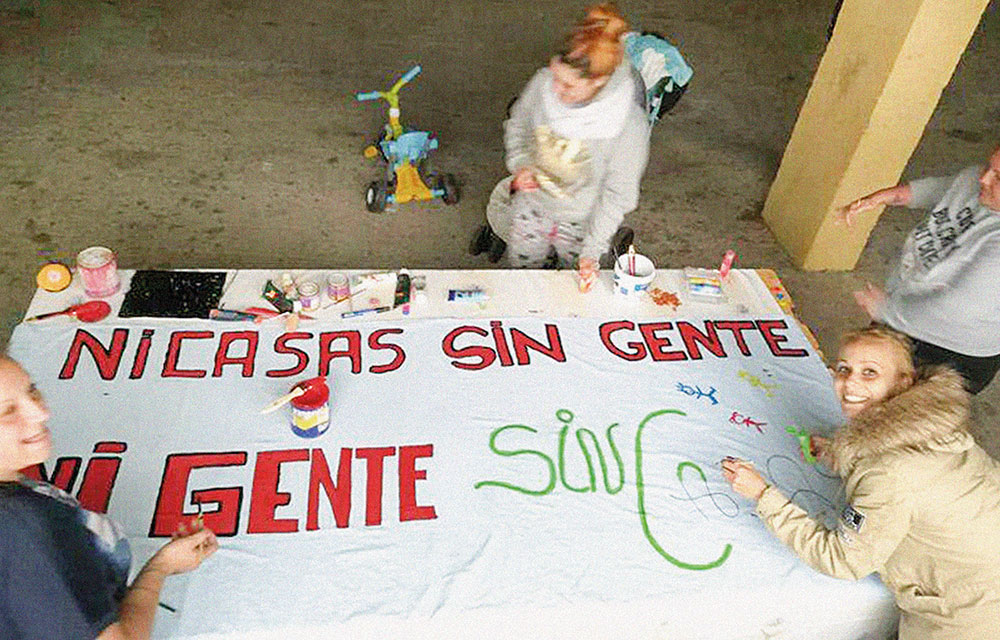
On the way to empowered communities and neighborhoods
The experience of years has shown the union that the functioning and organization of communities is better when there is an external conflict, either with the City Hall, with the Police or with the banks. When they only have to join the problem that they all share, the health of the community is strengthened. For this reason, it is clear from the union that conflict must be used to empower the community, and to do so it is necessary to create a human fabric. “Let people know, let them understand that they are suffering from the same problem. In short, it unites the common problems, that is what must be highlighted. We believe that the way to create links is through conflict, walking towards it,” they say. The conflict over housing problems would be the starting point for the creation of this social fabric, for the mutual knowledge of people in their neighborhoods and communities. As this tissue is introduced, there is also a certain individual politicization, a certain individual empowerment.
“Sharing a common problem can lead to a development of community awareness that can emerge in the communities managed by the union,” says the union.
Analyzing the housing problem from the perceptual class, we see how it affects both the Canary Islands and the Basque Country in the same way. We are united by the misery generated by the capitalist heteropatriarchal system, and we must become aware of it as soon as possible: to organize and advance towards conflict, on the road to empowerment. The Union of Tenants of Gran Canaria works in this sense: to point out the concrete problem and to oppose it. Not with the militant groups, but with the communities that make up the people of the neighborhood, with the strength of the individuals in the process of empowerment.
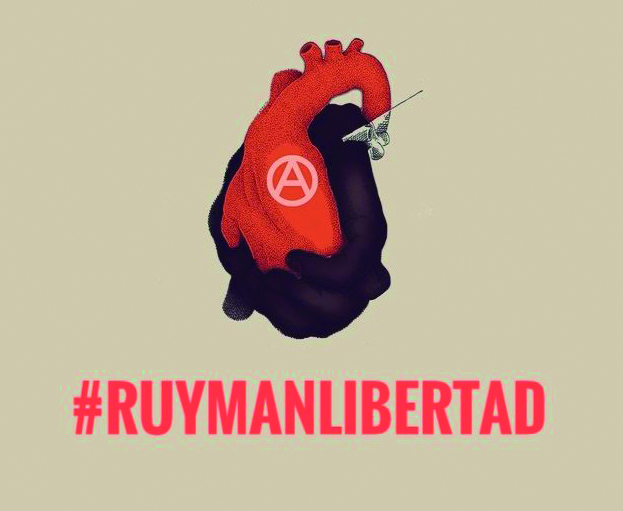 Ruymán Rodríguez, a member of the FAGC and SIGC groups, was brought to trial for the alleged kick of a civil guard in 2015, when he was being tortured after being illegally arrested. The Public Prosecutor's Office requires a prison sentence of one year and six months, with a fine of EUR 770. The FAGC and SIGC groups have made it clear that repression is directly related to their activity, as they have highlighted and angered the status quo of Gran Canaria. They denounce that the assembly is police and call for Ruyman's solidarity.
Ruymán Rodríguez, a member of the FAGC and SIGC groups, was brought to trial for the alleged kick of a civil guard in 2015, when he was being tortured after being illegally arrested. The Public Prosecutor's Office requires a prison sentence of one year and six months, with a fine of EUR 770. The FAGC and SIGC groups have made it clear that repression is directly related to their activity, as they have highlighted and angered the status quo of Gran Canaria. They denounce that the assembly is police and call for Ruyman's solidarity.
The poor management of the Valencian cold drop has led to a change in adverse meteorological alerts, as shown in the first season of "winter". Faced with the threat of rivers overflowing in Hego Euskal Herria, the indications for protection came along several paths, since no... [+]











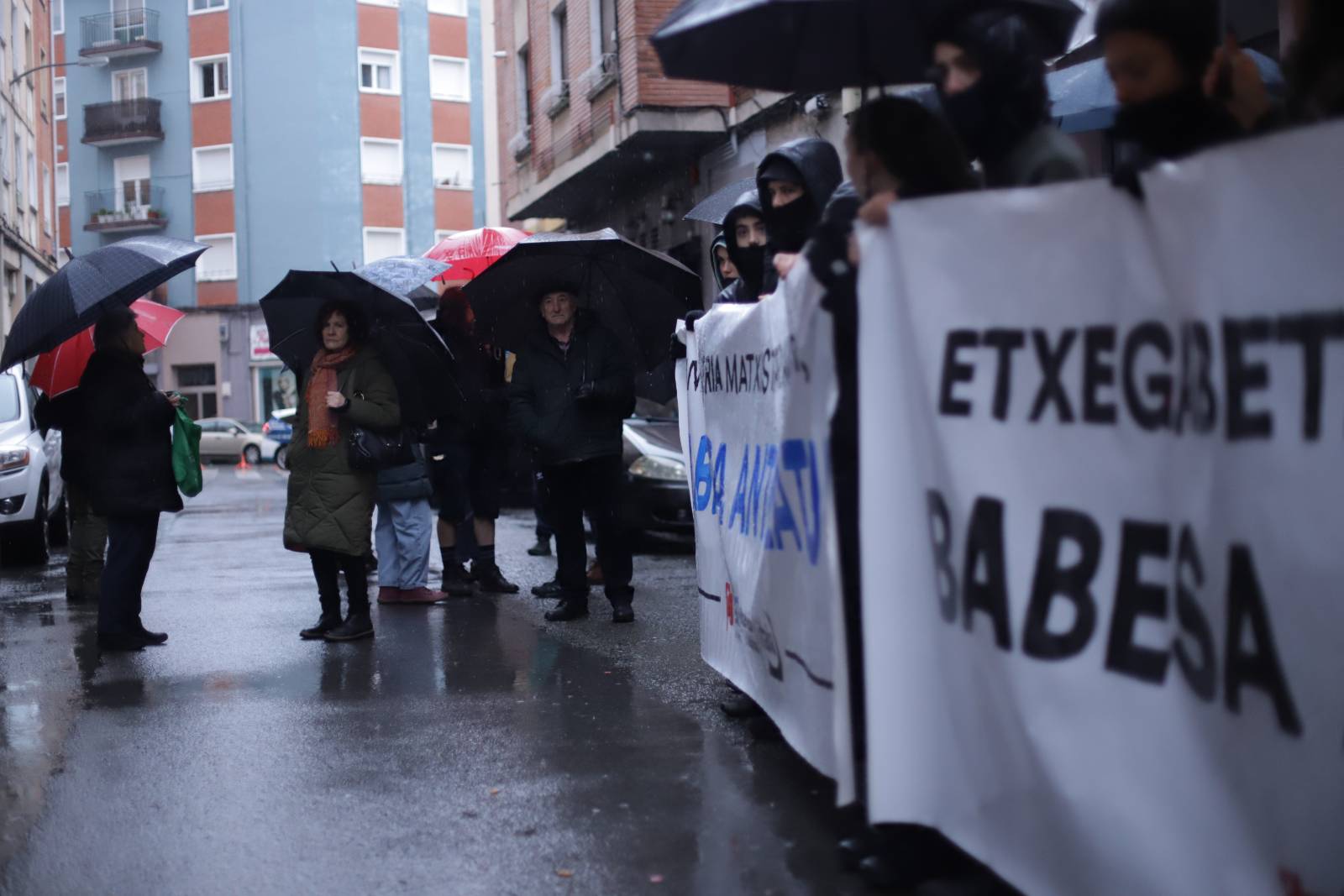




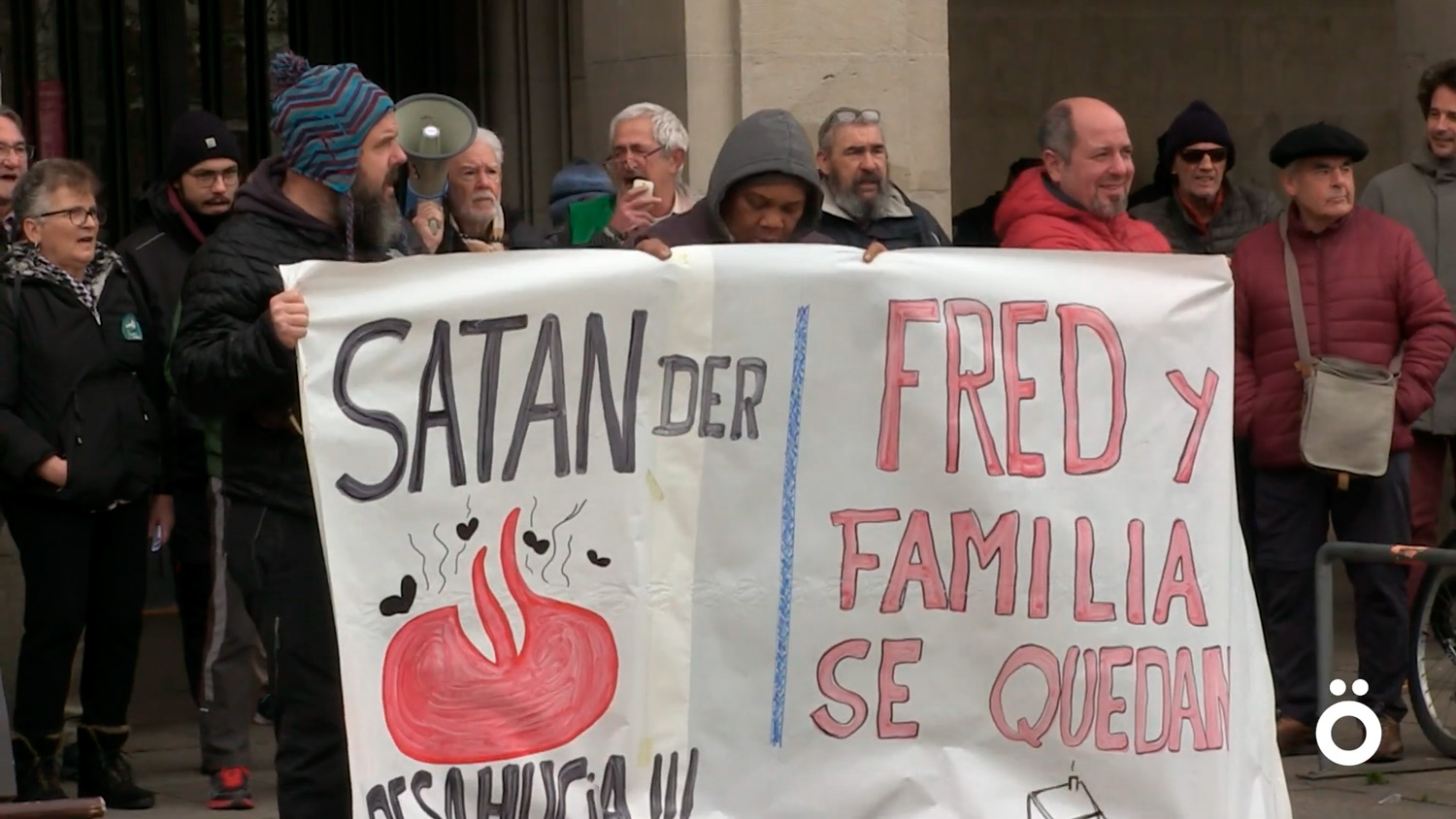
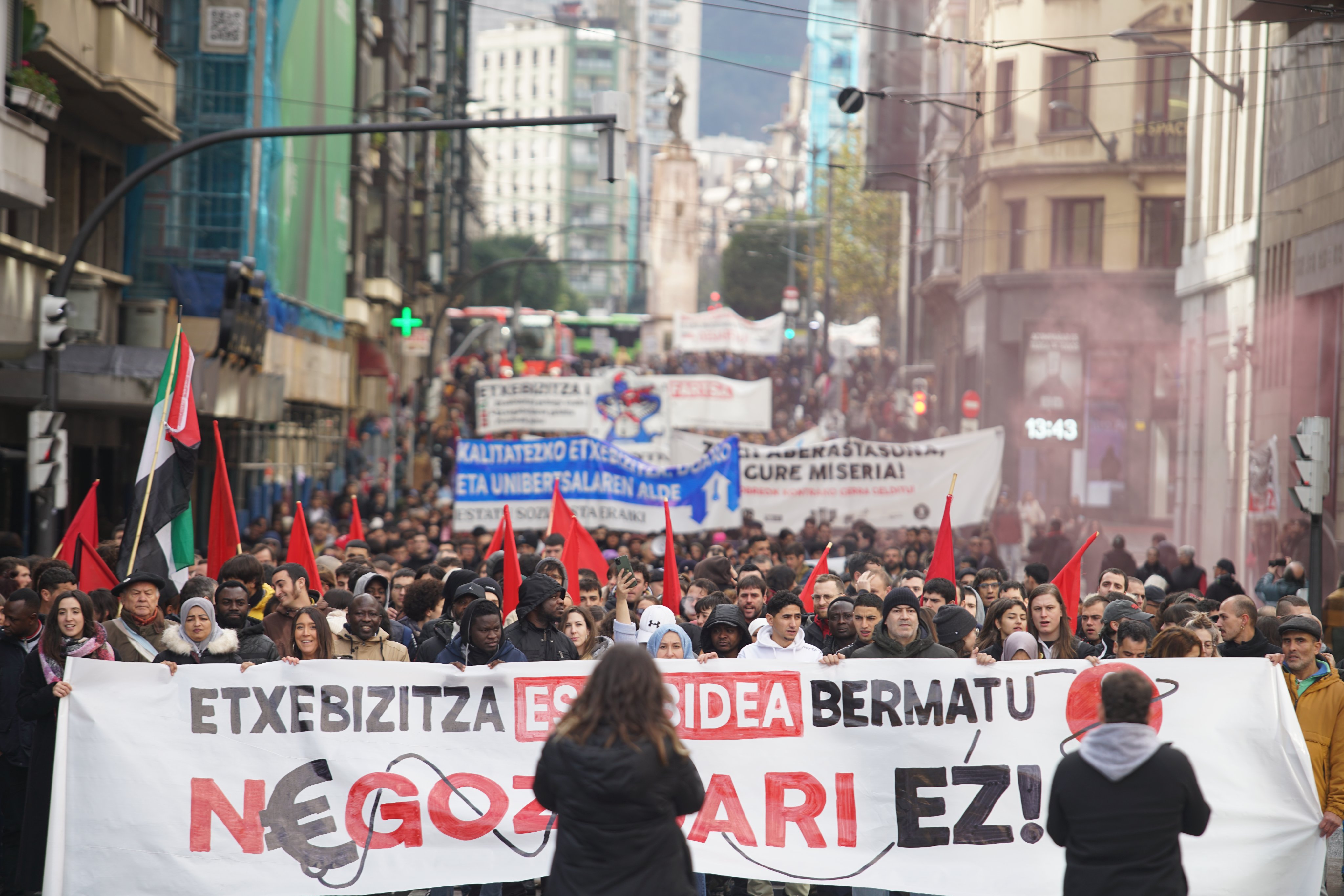

.jpg)

